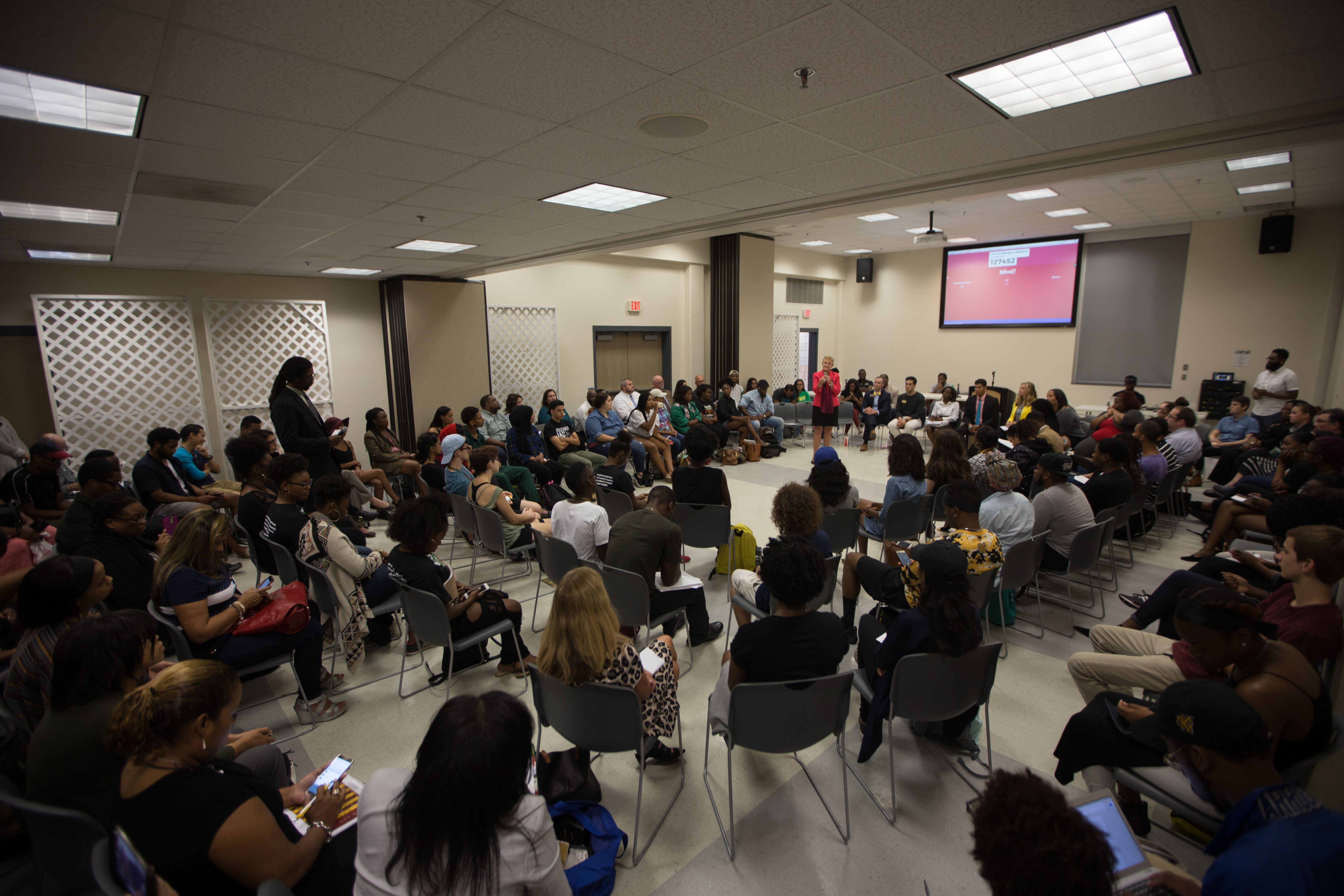The Commission on Racial and Ethnicity Dialogue hosted the State of Multicultural Student Life Town Hall meeting held on Wednesday, Sept. 28.
The meeting created a platform for students and faculty members to discuss topics that are faced by multiracial students. The panel included both faculty members and student leaders.
Race relations, religion, safe spaces and funding from the Student Activities Board Advisory Committee were among some of the topics covered at the town hall meeting.
Changes to SABAC
Kennesaw State University is composed of 41 percent of multicultural students. Many at the town hall, however, felt that recent changes in certain policies have made it difficult for multicultural student organizations to receive funding.
SABAC is a committee run mostly by students to make budgets for the hundreds of student organizations at KSU. Line item organizations, such as the Student Government Association and the African American Student Alliance, receive funds up front before the smaller student organizations receive funding.
KSU has 13 line item organizations that have been in place for almost two decades. Over the summer, SABAC changed the guidelines and policies regarding how funding would be released for the fiscal year 2016. This decision brought forth budget cuts.
“Kennesaw Activities Board and Student Government Association took the most hits when it came to budget cuts,” said Michael Sanseviro, the dean of students.

Student Fees and Funding
Those in attendance brought up the issue of the mandatory student activity fee, which “supports Registered Student Organizations’ programming, events and activities,” according to KSU’s website. For the current fiscal year, the student activity fee dropped from $51 the previous year to $39.
The decrease in the activity fee is because the Carmichael Student Center is finally paid off, according to K.C. White, the vice president of the Division of Student Affairs.
SABAC has allocated $1.3 million for fiscal year 2016 for all student organizations to share.
“They want to pit us against each other,” Sabrina Chambers, a junior studying professional sales, said. “But the money is there.”
Chambers is also the public relations chair for the African American Student Alliance.
“No one is transparent,” she said.
Student Center Renovations
Many organizations expressed frustration about the university failing to communicate the changes in policies, funding and buildings.
Plans to renovate the third floor of the Carmichael Student Center worried some organizations, especially since the cubicles will be torn down.
“Those cubicles won’t exist,” White said.
The Muslim Student Association currently uses the spaces to pray five times a day and wanted to know where they could go after the renovations.
“That’s where we go to feel safe and pray,” Devyn Springer, a senior studying African and African Dispora Studies, said.
The panelists shuffled around trying to find the answer to the questions at hand regarding the prayer space for the MSA.
“We are trying to create more space for programming,” Sanseviro said.

Moving Forward
After the town hall ended, students were invited to participate in a survey. One question asked if students wanted an internal audit of SABAC funds. Out of the responses, 57 students answered yes and only four said no.
“I would love to come up with a solution to the problem,” SGA President Victoria Brock said about the concerns raised during the town hall.
The Commission on Racial and Ethnicity Dialogue plans to host another town hall meeting to address more concerns of the students, though no details were released as of Monday.



